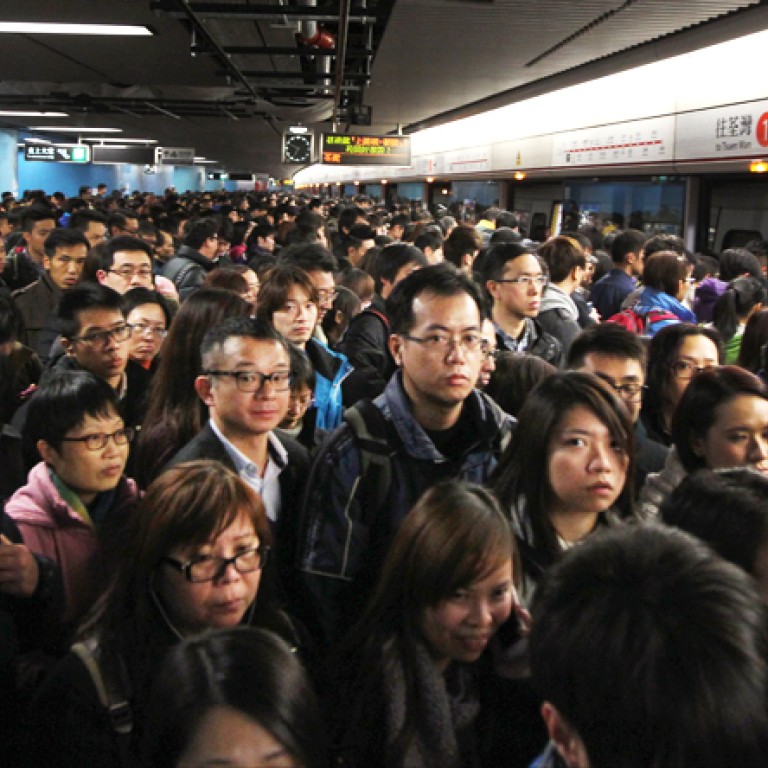
Respect and tolerance for all must be enshrined in Hong Kong policy
Kerry Kennedy says recent cases of discrimination in Hong Kong make such a step necessary
Chief Executive Leung Chun-ying's second policy address nailed his government's socially progressive credentials to the mast. Apart from middle class cries of "me too", and the usual opposition from those who will never give any credit to this government, support for the city's poor has been well received.
One area in particular is educational support for Hong Kong's ethnic minorities. Long overdue, a new school curriculum could prepare these students for a better life, with greater potential to contribute to the good of Hong Kong.
Yet, just as it seemed one aspect of Hong Kong's multicultural landscape was being addressed, another, less positive element emerged. This was the very public exposure of alleged abuse against foreign domestic helpers that led one international news outlet to refer to Hong Kong's "slave maids".
The television and print media have been relentless in their pursuit of the issue and the secretary for labour is contemplating induction courses for newly arrived domestic helpers to acquaint them with their rights.
There are other blots on our multicultural copybook, too.
Last March, the Court of Final Appeal made it clear to the government that a unified screening mechanism was necessary to deal with the city's refugees and asylum seekers. The government has been relying on the UN refugee agency to make judgments about who was and who was not a refugee. But a lack of resources on the part of the UNHCR often meant claimants waiting for years for a decision to be made.
In the meantime, refugee claimants could not work and their children could not go to school. The government provides a small stipend for refugees but stories of refugee life in Hong Kong make it clear that such people from different parts of the world are neither welcomed nor greatly assisted.
Apart from the racial discrimination evident in attitudes to domestic helpers and refugees, social discrimination experienced by mainland visitors is also a matter of daily comment in the media. Terms like "locust" have been used to describe mainlanders, resulting at one time in a full-page advertisement complaining about the impact of tourists from across the border.
This situation has not been helped by the issue of mainland births in the city's hospitals and the need to place restrictions on the amount of baby formula that can be taken out of the city.
Social discrimination is alive and well in Hong Kong.
So the glimmer of hope offered for the city's ethnic minorities is overshadowed by other, less savoury, aspects of life in the city.
Acknowledging Hong Kong's multi-ethnic, multicultural reality seems to be a priority not only for the government but for society as a whole. Calls for a harmonious society fall on deaf ears when blatant racial and social discrimination are part of daily life.
Steps must be taken to eliminate all forms of discrimination from the city - democracy and discrimination cannot co-exist.
The government can take the lead; this would be perfectly consistent with its socially progressive agenda. A multicultural policy should be developed that sets out the city's values of tolerance, respect, equality and fairness for all of the city's residents - much as it is done in the Hong Kong Bill of Rights. These values need to be enshrined in policy that makes it clear to the world where Hong Kong stands on these important issues, and it needs to be followed up with public education programmes.
The Social Welfare Department and the Equal Opportunities Commission are ideal platforms for this public education work. Schools are where this work should begin, and families are the places where the message needs to be heard and practised.
Multiculturalism, of course, comes with baggage; it can lead to a more cohesive society or a more fragmented society.
Yet we only need to look at the teachings of the Buddha, Confucius or Jesus to see how human beings have been urged to live together in peace and harmony rather than conflict - it is not a question of politics but morality.
Hong Kong can create the kind of society where the values of these teachers are lived out. This will involve a commitment to a vibrant multiculturalism that respects people from all cultures, values their contribution and encourages them to be more than they ever hoped they could be.
This vision needs to be enshrined in a policy that signals in Hong Kong and beyond the city's values as a caring and just society.

